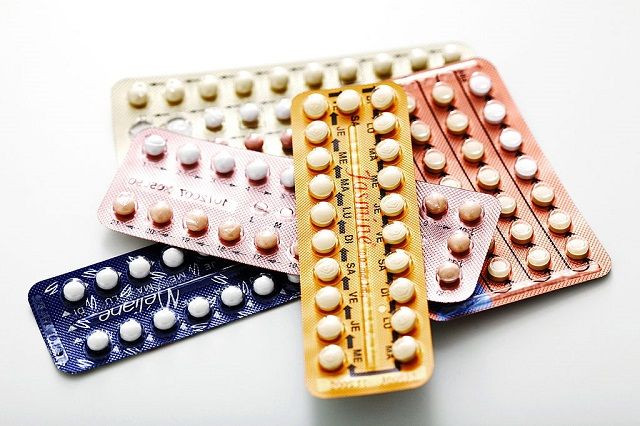Does The Birth Control Pill Cause Depression? Women Who Take Hormonal Contraception May Be At Higher Risk

A new extensive study of Danish women suggests that the birth control pill and other hormonal contraceptives may leave their users more vulnerable to later developing depression.
Researchers analyzed the medical records of over one million healthy Danish women ages 15 to 34 and found that women who had been prescribed any form of hormonal contraception between 1995 and 2013 were more likely to be later prescribed an antidepressant for the first time than those who hadn’t, or to receive a formal diagnosis of depression from a psychiatric hospital, the study found.
The associated risk was highest for women who used the patch and vaginal ring as well as those who obtained their contraception when they were teenagers. Women on combined oral contraceptives, the most popular type of birth control, were 23 percent more likely to be prescribed antidepressants than non-users. The findings were published Wednesday in JAMA Psychiatry.
“Use of hormonal contraception, especially among adolescents, was associated with subsequent use of antidepressants and a first diagnosis of depression, suggesting depression as a potential adverse effect of hormonal contraceptive use,” the authors concluded.
The idea that hormones can influence depression risk isn’t anything particularly controversial. As the researchers note, it’s widely speculated that the ramped-up production of progesterone that first begins in puberty for women is at least partially to blame for the fact that women are twice as likely to be diagnosed with depression than men. Other research has shown that women with higher levels of progesterone and lower levels of estrogen may be at increased risk of depression, the authors note. And doctors already recommend that women at risk of depression or other mood disorders use different contraceptive methods.
A more specific link between the Pill and depression has been harder to show, though. While some studies, particularly of teenage girls, have found an increased risk, others haven’t and a few have actually found the opposite, the authors said. Given the expansive and representative sample size (more than 98 percent of all antidepressant prescriptions within the country are accurately tracked and 80 percent of Danish women have used hormonal contraception in their lifetime, the authors wrote), the researchers are confident their findings provide some of the strongest evidence for a link yet.
Other experts, while not dismissive of the findings, are more cautious about its implications.
“The study does not prove (and does not claim) that the pill plays any role in the development of depression,” Dr. Channa Jayasena, a clinical senior lecturer in reproductive endocrinology at Imperial College London, told Science Media Center. “However, we know hormones play a hugely important role in regulating human behaviour.“
Added Dr. Ali Kubba, a member of the the Royal College of Obstetricians and Gynaecologists (RCOG): “There is existing clinical evidence that hormonal contraception can impact some women’s moods, however, from this study there is no way of linking causation, therefore further research is needed to examine depression as a potential adverse effect of hormonal contraceptive use.
Adding further support to their theory, the researchers found that women who took pills that only contained progestin (a synthetic version of progesterone) were at higher risk. Similarly, the reason why patch and ring users were at higher risk was likely because both products contained more hormones than the traditional pill, they theorized. On the other hand, an important caveat noted by the authors is that antidepressants aren’t always prescribed for depression, making them an imperfect indicator of the condition.
And though the sample size studied was large, it's important to put the numbers in context. Though 55 percent of the women were current or recent users of hormonal birth control, just about 12 percent of women overall were prescribed an antidepressant during the study period, and only 2 percent were officially diagnosed with depression. That likely means the absolute risk of depression from taking hormonal contraception, if it exists, is still fairly low.
For the time being, there’s no need for the average women to be worried, said Kabba.
“Women should not be alarmed by this study as all women react differently to different methods of contraception,” he said. “There are a variety of contraceptive methods on offer, including the Pill, implants, injections, intrauterine devices, and vaginal rings and we therefore advise women to discuss their options with a doctor, where they will discuss the possible side-effects and decisions around the most suitable method can be made jointly.”
Source: Skovlund C, Mørch L, Lidegaard Ø. Association of Hormonal Contraception With Depression. JAMA Psychiatry. 2016.



























